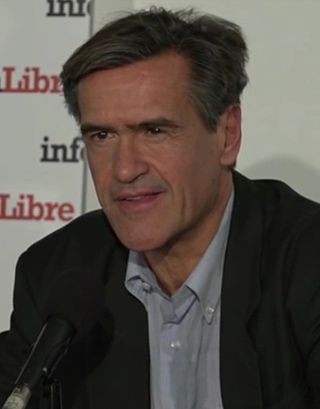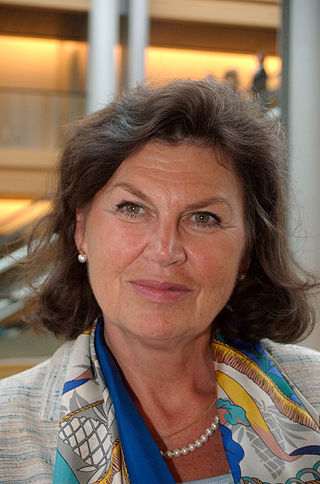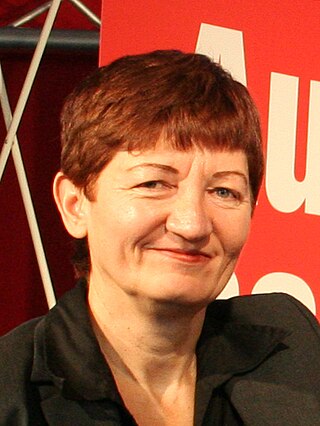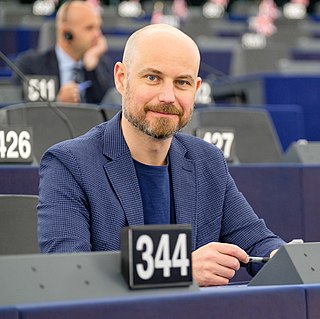Related Research Articles
Civil liberties are guarantees and freedoms that governments commit not to abridge, either by constitution, legislation, or judicial interpretation, without due process. Though the scope of the term differs between countries, civil liberties may include the freedom of conscience, freedom of press, freedom of religion, freedom of expression, freedom of assembly, the right to security and liberty, freedom of speech, the right to privacy, the right to equal treatment under the law and due process, the right to a fair trial, and the right to life. Other civil liberties include the right to own property, the right to defend oneself, and the right to bodily integrity. Within the distinctions between civil liberties and other types of liberty, distinctions exist between positive liberty/positive rights and negative liberty/negative rights.

Claude Ajit Moraes is a British Labour Party politician and campaigner, who was a Member of the European Parliament (MEP) for London between 1999 and the United Kingdom's withdrawal from the EU on 31 January 2020. He was chair of the Civil Liberties, Justice and Home Affairs Committee, Deputy Leader of the European Parliamentary Labour Party and vice-president of the Socialists and Democrats Group in the European Parliament.

Juan Fernando López Aguilar is a Spanish jurist and politician of the Spanish Socialist Workers' Party (PSOE) who has been serving as a member of the European Parliament since 2009. He served as Minister of Justice in the government of José Luis Rodríguez Zapatero. He also represented Las Palmas in the Congress of Deputies between 1996 and 2007 and between 2008 and 2009.

Emine Bozkurt is a Dutch politician of Turkish descent and Member of the European Parliament between 2004 and 2014. She is a member of the Dutch Labour Party, which is part of the Party of European Socialists.

Ulla Margareta Charlotte Cederschiöld is a Swedish politician and was a Member of the European Parliament until 2009. She is a member of the Moderate Party, part of the European People's Party - European Democrats group.

The European Union Agency for Fundamental Rights, usually known in English as the Fundamental Rights Agency (FRA), is a Vienna-based agency of the European Union inaugurated on 1 March 2007. It was established by Council Regulation (EC) No 168/2007 of 15 February 2007.

The Directorate-General for Justice and Consumers is a Directorate-General of the European Commission. The role of the body is to ensure that the whole European Union (EU) is an area of freedom, security and justice. The specific tasks and responsibilities of the DG are laid down by the Treaty of Rome, the Treaty of Amsterdam, which came into force on 1 May 1999, and the conclusions of the European Council meeting in Tampere (Finland), a special meeting held on 15-16 October 1999 concerned with the creation of an area of freedom, security and justice within the EU.
Filiz Hyusmenova is a Bulgarian politician of Bulgarian-Turkish descent who served as a Member of the European Parliament (MEP) from 2007 until 2019. She is a member of the Movement for Rights and Freedoms, part of the Alliance of Liberals and Democrats for Europe.

The Commissioner for Justice is a post in the European Commission. The portfolios of Justice and Equality were previously combined as Commissioner for Justice, Consumers and Gender Equality under commissioner is Věra Jourová; however, the two portfolios were split in 2019. Didier Reynders currently serves as Justice Commissioner and Helena Dalli serves as Equality Commissioner.

Human rights in Canada have come under increasing public attention and legal protection since World War II. Prior to that time, there were few legal protections for human rights. The protections which did exist focused on specific issues, rather than taking a general approach to human rights.

The area of freedom, security and justice (AFSJ) of the European Union (EU) is a policy domain concerning home affairs and migration, justice as well as fundamental rights, developed to address the challenges posed to internal security by collateral effects of the free movement of people and goods in the absence of border controls or customs inspection throughout the Schengen Area, as well as to safeguard adherence to the common European values through ensuring that the fundamental rights of people are respected across the EU.

Cornelia Ernst is a German politician and Member of the European Parliament (MEP) from Germany. She is a member of The Left Party, part of the European United Left–Nordic Green Left.

Evelyn Regner is an Austrian lawyer and politician who has been serving as a Member of the European Parliament from Austria since 2009. She is a member of the Social Democratic Party of Austria, part of the Progressive Alliance of Socialists and Democrats and elected vice-president of the European Parliament.

The Justice and Home Affairs Council (JHA) is one of the configurations of the Council of the European Union and is composed of the justice and home affairs ministers of the 27 European Union member states.

Theresa Reintke is a German politician who has been serving as a member of the European Parliament from Germany since 2014. She is co-president of the Greens/EFA Group in the European Parliament. She is a member of the Alliance 90/The Greens, part of The Greens–European Free Alliance. From 2011 to 2013 she was the spokesperson of the Federation of Young European Greens.

Tomas Gunnar Tobé is a Swedish politician who serves as a Member of the European Parliament since the 2019 European Parliament election in Sweden.

Vilija Blinkevičiūtė is a Lithuanian lawyer and politician, Member of the European Parliament and former long-term Minister for Social Security and Labour. Blinkevičiūtė is a member of the Social Democratic Party of Lithuania since 2006.

María Teresa "Maite" Pagazaurtundúa Ruiz, better known as Maite Pagazaurtundúa or Maite Pagaza, is a Spanish politician, activist and writer. For ten years, she has been an MEP in the European Parliament, where she has been a member of the political groups Renew Europe and ALDE.

Vladimír Bilčík is a Slovak university lecturer and politician of the Slovak party Democrats. He has served as a Member of the European Parliament from 2019 to 2024. During the 2019 European Parliament election in Slovakia, Bilčík ran as the leader of Democrats, as part of a coalition with Progressive Slovakia. He got 26,202 preferential votes in total.
References
- 1 2 "Civil Liberties, Justice and Home Affairs (under "Presentation and responsibilities")". European Parliament. Retrieved 3 October 2014.
- ↑ "Committee on Employment and Social Affairs". European Parliament. Retrieved 3 October 2014.
- ↑ Committee chairs chosen European Voice , 21 July 2004.
- ↑ Nicholas Hirst (26 June 2014), Left takes chairs of business committees in Parliament Politico Europe .
- ↑ "Parliament's committees elect chairs and vice-chairs". European Parliament . Retrieved 11 July 2019.
- ↑ "Members". European Parliament Committee on Civil Liberties, Justice and Home Affairs. Retrieved 3 October 2014.
- ↑ Crisp, James (17 July 2014). "Neo-Nazi takes seat on Parliament Civil Liberties Committee, Schulz furious (updated)". EurActiv.